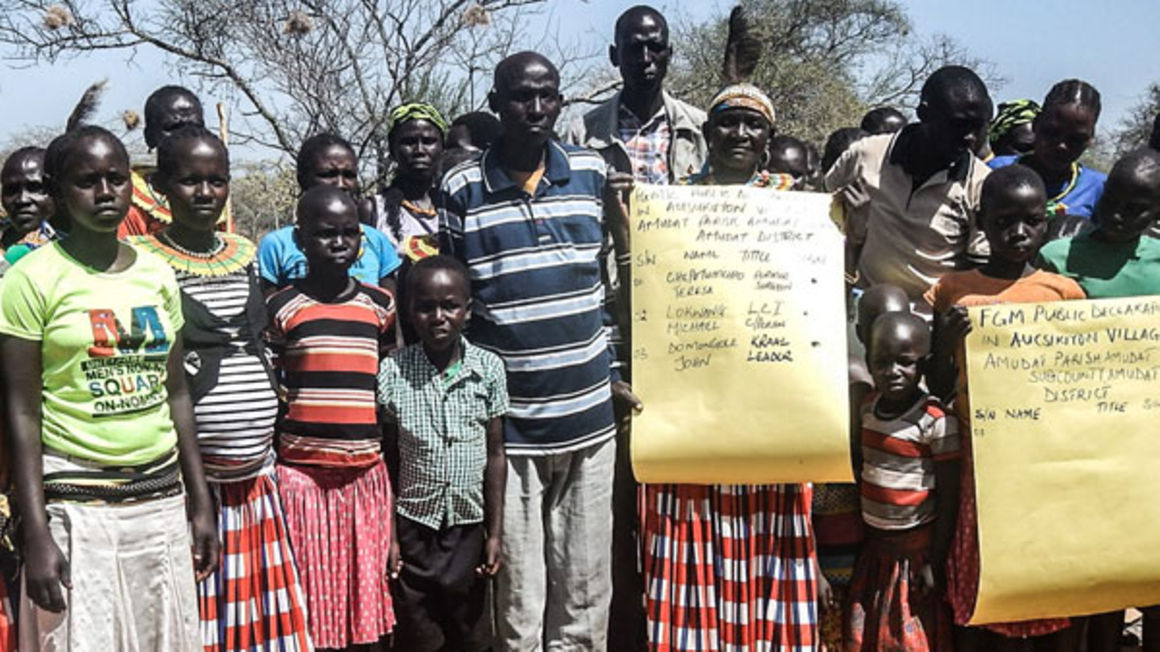Prime
Campaign to curb FGM, early marriage starts

Members of Ausukuyon Village in Amudat Parish display their public declaration against FGM in 2018. PHOTO / FILE
A campaign to curb female genital mutilation (FGM), teenage pregnancies and gender based violence (GBV) has kicked off in eastern Uganda.
The five-year project, which is being carried out by Uganda Youth and Adolescents Health Forum (UYAHF) in partnership with Men Engage and the Eastern African Sub-regional Support Initiative for the Advancement of Women (EASSI), will take place in six districts.
Among the districts include Bukwo in Sebei Sub-region, which has been registering numerous cases of FGM despite the practice being outlawed in 2010.
The other districts where the fight against teenage pregnancy and GBV will take place include Mbale, Busia, Kampala, Kalangala, and Isingiro.
Rev Fred Musobo, a resident of Bukwo, said at the weekend that FGM has remained in some communities in the district due to primitive cultural beliefs.
“The practice is being sustained by social perceptions, including that girls will face shame, social exclusion and diminished marriage prospects,” he said.
Rev Musobo said the outlawed practice is still common among the illiterate families, especially in Bukwo and Kween.
The government banned FGM in 2010, with any person convicted of the practice facing up to 10 years in jail, among other sentences.
Mr Joseph Soyekwo, a resident of Kween District, said the government needs to join hands with NGOs to end the vice that exposes women to many side effects.
“The government should also come up with an alternative way to economically motivate the mutilators. Since the government banned the practice, they have become unemployed and yet
this was their source of livelihood,” Mr Soyekwo said.
Mr Patrick Mwesigye, the executive director of UYAHF, said the campaign will empower young girls from communities with information regarding the harmful practices of FGM and early
marriage.
“We want to protect young people from all forms of sexual and GBV. We are looking mainly the most vulnerable group of young people especially girls in remote communities,” Mr Mwesigye,
said.
He said the programme will also help to address stigma against girls living with HIV/Aids and victims of rape and defilement.



